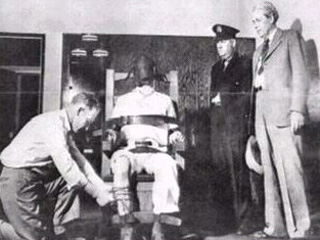 Rather Big
Rather BigWashington — Obesity has long been a problem mostly of the poor, but new research shows that the more affluent are catching up quickly.
The prevalence of obesity is growing three times faster among Americans who make more than $60,000 a year than it is among their low-income neighbours, a study being presented Monday at a meeting of the American Heart Association says.
“This is a very surprising finding,” lead researcher Dr. Jennifer Robinson of the University of Iowa said.
It is paradoxical – for years doctors have known that the people most likely to be overweight have the lowest incomes. That is because fresh produce and other healthy fare are more expensive and less accessible in low-income neighbourhoods than are fast food and other high-fat options.
In fact, just last week a report criticized the government nutrition program that feeds millions of low-income women and children for, among other things, providing hardly any fresh produce and favouring high-calorie juice over nutritionally better fruit.
Even as U.S. obesity rates have ballooned since the 1970s, disposable income has too, and Dr. Robinson wondered what role the extra change was having on waistlines.
She and graduate student Nidhi Maheshwari sifted through decades of data from the National Health and Nutrition Examination Surveys, one of the government's prime health databases, to compare obesity with family income.
In the early 1970s, 22.5 per cent of people with incomes below $25,000 were obese. By 2002, 32.5 per cent of the poor were.
By comparison, only 9.7 per cent of people with incomes above $60,000 were obese in the 1970s, but that figure jumped to 26.8 per cent in 2002.
Money for good-quality food aside, higher-income people are thought to be better educated and have better access to health care, so why such a jump among them? Dr. Robinson cannot say, but she speculates that longer commutes, growing popularity of restaurants and possibly longer work hours since the 1970s are playing a role.
The poor still are the most likely to be fat, said Dr. Adam Drewnowski of the University of Washington, a prominent expert on the problem. Moreover, since the '70s, rates of extreme obesity – being 90 to 100 pounds or more overweight – have ballooned among lower-income groups, something the study does not address, he said.
Further complicating attempts to compare income and obesity are cultural factors. Certain racial and ethnic groups positively equate a man's girth with wealth – it is a sign of success, Dr. Drewnowski said.
“I would caution against any attempts to interpret these data to say social differences have disappeared,” he stressed. “It just shows that obesity is a general problem and it's now affecting pretty much everybody. ... But it would be very shortsighted to stop paying attention to the people who are most vulnerable.”
Dr. Robinson agreed. “I don't want to take focus away from the serious racial and ethnic disparities,” she said.
But, she said, it is likely that different factors play a role in spurring obesity among the middle class than the poor.
“We need to have a lot more research ... to tailor our interventions to specific populations.”
Yet today, the obesity remedies most often recommended for Americans in general – eat fresh salads, go ride a bike – are impossible for many low-income families, Dr. Drewnowski said
Exercise is hard in inner cities, where the streets may be too dangerous after working hours. Many grocery stores in low-income neighbourhoods do not stock expensive fresh produce. And people who work two or three jobs have little time to make home-cooked meals.
Associated Press








